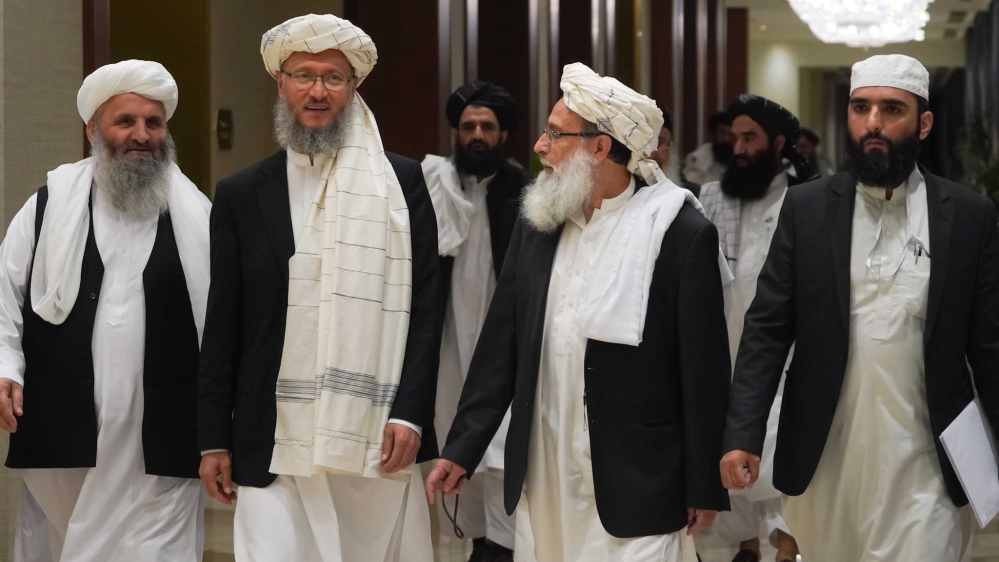
Kabul, September 12: After long delays, the talks between the Islamic Republic of Afghanistan and the Taliban finally began in Doha on Saturday. The negotiations are intended to bring about a political settlement to a decades-long conflict thas has taken many lives and destabilized the country, Tolo news reported
This signed a peace deal on February 29 that was aimed to pave the way for the withdrawal of US forces from Afghanistan in exchange for a number of solid assurances by the Taliban to the US and its allies, the news report said.
Under the Doha deal, the Taliban demanded the release of 5,000 prisoners from the Afghan jails and committed to start intra-Afghan negotiations with Afghan sides on March 10, 2020.
But intra-Afghan talks have hit constant delays since then due to political, technical and legal issues facing the Taliban prisoner release. However, international and domestic efforts accelerated to finalize the release of the prisoners to persuade the group to endorse intra-Afghan talks.
Although the Afghan government released over 4,500 of the 5,000 demanded by the Taliban, the government referred the decision about the release of the 400 dangerous Taliban prisoners to the Loya Jirga to decide their fate.
On August 9, the Loya Jirga, the grand assembly, in a resolution approved the release of the 400 Taliban prisoners in an aim to quickly start the intra-Afghan talks and bring about a ceasefire and an end to the nation’s war.
On the same day, President Ashraf Ghani, in the closing speech to the Loya Jirga members, said he would sign a decree to free the 400 remaining Taliban.
But the talks again hit delays after Australia and France opposed the release of at least 6 hardcore Taliban prisoners. France and Australia said that these prisoners were involved in killing their citizens in Afghanistan.
On September 10, The Taliban confirmed that six of its “hardcore” prisoners, whose release Australia and France expressed reservations, were transferred to Doha.
US-Taliban deal in greater context:
Based on the Doha peace deal, a permanent and comprehensive ceasefire will be an item on the agenda of the intra-Afghan dialogue and negotiations.
The participants of intra-Afghan negotiations will discuss the timing and details of a permanent and comprehensive ceasefire, including joint implementation mechanisms.
According to the agreement, the United States has committed to withdraw from Afghanistan all military forces of the United States, its allies, and Coalition partners, including all non-diplomatic civilian personnel, private security contractors, trainers, advisors, and supporting services personnel within fourteen (14) months following the announcement of the agreement, and will take the following measures in this regard:
The agreement states that the United States is committed to start immediately working with all relevant sides on a plan to expeditiously release combat and political prisoners as a confidence-building measure.
The agreement also said that the United States and its allies will refrain from the threat or the use of force against the territorial integrity or political independence of Afghanistan or intervening in its domestic affairs.
Based on the agreement, the Taliban has also committed to the following measures:
The agreement says that the Taliban will not allow any of its members, other individuals or groups, including al-Qa’ida, to use the soil of Afghanistan to threaten the security of the United States and its allies.
The agreement notes that the Taliban will send a clear message that those who pose a threat to the security of the United States and its allies that they have no place in Afghanistan, and will instruct Taliban members not to cooperate with groups or individuals threatening the security of the United States and its allies.
According to the US-Taliban agreement, the Taliban will prevent any group or individual in Afghanistan from threatening the security of the United States and its allies and will prevent them from recruiting, training, and fundraising and will not host them in accordance with the commitments in this agreement.
In line with the agreement, the Taliban committed to deal with those seeking asylum or residence in Afghanistan according to international migration law and the commitments of this agreement, so that such persons do not pose a threat to the security of the United States and its allies.
The agreement also reads that the Taliban will not provide visas, passports, travel permits, or other legal documents to those who pose a threat to the security of the United States and its allies to enter Afghanistan.
The talks were initially started in 2018 as part of a push by US President Donald Trump to strike a deal with the Taliban, which has been fighting the US-led forces in Afghanistan since it was toppled from power in 2001.
(The news story was published in Tolo news)
